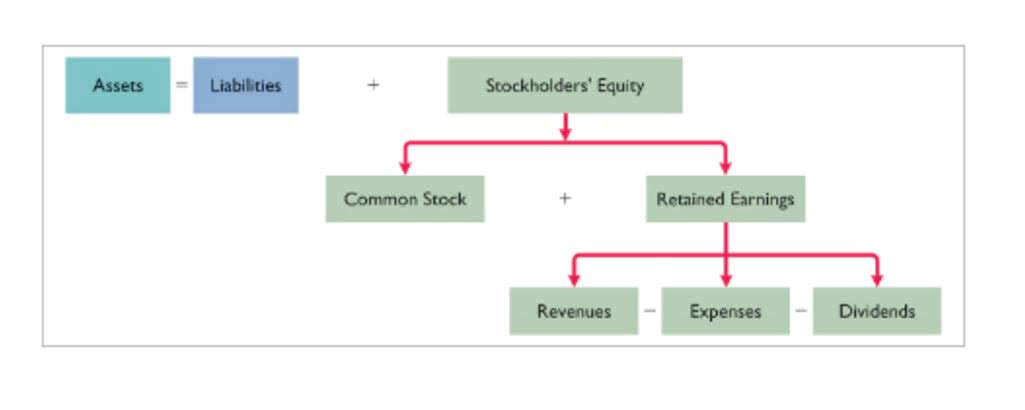
Whether you hire an accountant or opt for other accounting software, you need to understand the basics of startup accounting. Gusto earns a 4.7-star rating on Capterra with 3,868 reviews and a 4.5-star rating on G2 with over 1,930 user reviews. Users say the software is easy to use and offers comprehensive features for small businesses.
Startup Accounting Guide: Everything You Need to Know
- We’d best run through a few of the very basics when it comes to accounting.
- Remember the difference between your income and cash flow statements, above?
- To do so, some of its standout tools include work experience optimization tools, workforce analytics and career and staff planning.
- For example, employees can use their mobile apps to track their time.
- Effective startup accounting helps ensure that your business stays tax-compliant.
- At that point, hiring an accountant may make more sense than handling your own bookkeeping.
They also like that Gusto constantly offers new features and improvements based on customer feedback. Though many say they have received superior customer support, some say startup bookkeeping their customer support experience was tedious and offered delayed problem resolution. Its features span hiring and recruiting, payroll processing and talent management.
Startup Accounting: Recordkeeping
- Our timesaver package will provide you with a proactive partner who will handle your accounting needs while you focus on business.
- There can be any number of partners in a partnership, but it is most common for there to be two (dual-partnership) or three (triple-partnership).
- For more information on how Sage uses and looks after your personal data and the data protection rights you have, please read our Privacy Policy.
- However, there was a large requirement for entering manual data, which made the process a bit tedious at times.
- Don’t forget to take care of your personal credit card repayments on time.
- It’s essentially like taxes – the money is in your account, but it’s not really yours.
These tools automate routine tasks like accounting, invoicing, and expense tracking, decreasing the likelihood of errors and saving you time. Paying staff members can be a major outlay for a business, especially those just getting off the ground. Fortunately, it’s also one of the most beneficial when it comes to tax savings.
- The value of having someone who understands your complete financial situation really can’t be overstated.
- Keeping personal and business finances separate is an important factor for maintaining accurate records and making tax season much easier.
- For high-growth startups, especially ones that expect to raise venture capital, management needs access to high quality financial statements.
- There are tools we tried, including personal development and goal setting, that required little explanation.
- This startup financial model is used to negotiate the size of the option pool needed at a venture round.
- Most of the core functionality needed to manage HR are available through isolved.
- By developing these accounting basics, you can efficiently handle your startup’s finances, make educated choices, and maintain financial stability.
Accounting costs for startups
Best Accounting Software for Small Business of 2024 – NerdWallet
Best Accounting Software for Small Business of 2024.
Posted: Thu, 30 Sep 2021 06:32:49 GMT [source]
At the absolute minimum, a business is likely to need records of its transactions when tax season rolls around. Maintaining good financial record-keeping habits from the beginning can illustrate deductions and exemptions that could save money when filing taxes, and avoid that end of tax year panic. A startup might not need an incredibly in-depth analysis in the early days. The amount of analysis will likely vary business to business, but every startup is advised to maintain well-kept records of all financial transactions. Keep adequate working capital to meet your short-term fiscal obligations. Working capital is the difference between your current assets (inventory, cash, accounts receivable) and liabilities (short-term debts, accounts payable).
How Financial Statements get Built at a Startup
There’s a workforce management solution that’s easy to use for requesting time off (though it’s a bit confusing without training). There are tools we tried, including personal development and goal setting, that required little explanation. As with any SAP product, SAP SuccessFactors offers 24/7 support via phone, live chat and email. And as far as training, you’ll have to pay for courses for all employees to make implementation as seamless as possible. We found videos and documentation online (for free) that can help you learn how to use most modules and features.
Separate Bank Account
Accounting has two main methods; the accrual method and the cash method. These approaches impact how you record certain line items like sales and debts on your financial statements. Also, some business types are required to choose the accrual method, but this varies based on industry as well as the country. Accrual basis accounting counts money when it’s “earned” https://www.bookstime.com/ rather than received (and the same with expenses). So, for example, if your customer signs a big contract, you’d consider the money earned, even if they haven’t paid you yet. By monitoring business finances and producing a cash flow statement, accountants see whether profits or losses will affect your company’s ability to meet financial obligations.
If you are using a startup accounting software, these documents will be created for you. Set up proper financial systemsTo ensure efficient accounting, startups need to set up proper financial systems. This includes developing a chart of accounts and a structured list of categories defining the company’s financial transactions. It allows you to precisely track revenue, expenditures, assets, liabilities, and equity. When setting up a new bank account for your business, be sure to get the right type of account that meets the needs of your company. Also, consider the bank’s online banking and mobile app features, as this can significantly streamline your day-to-day banking tasks.
Accounts receivable

Employers may be liable in the event of an unauthorized data access event. Additionally, ensure security and access to data based on the user. For example, HR, manager and employee users all need access to the system, but each of these groups needs different access to the stored data. Gusto offers email, chat and phone support to all customers from 6 a.m.
- Read more here about which accounting method is right for your startup.
- Another feature of company accounting is the way you deal with taxes.
- Without proper accounting, startups may be operating at a loss or unable to measure their new business success accurately.
- The Bureau of Labor Statistics states that accounts are paid $78,000 annually or $37.50 per hour on average.
- Calculating the correct business taxes could become difficult if you don’t maintain accurate financial accounts.
- This priority support is also offered as an add-on in its Plus plan.
Let’s face it, finances can be tedious and time-consuming, and running a small business is hard enough as it is. Luckily, technology has made performing accounting tasks much easier via automation tools which help to reduce human error and save valuable time and money. An accountant familiar with your industry will help you pay the least amount of taxes possible and protect you from the IRS limelight. Before filing your first business tax return, you’ll need to choose one of two possible accounting methods. There are various benefits to automated accounting software and cloud-based accounting software that allow users to access information securely from remote locations.

